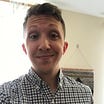
The organizations through which George Soros, one of the hard right’s greatest bogeymen, has done much of his political work are called the Open Society Foundations. Soros took the name from Karl Popper’s The Open Society and Its Enemies, a work of powerful social philosophy set against the totalitarian ills of 20th-century Europe. Soros, born in Horthy’s Hungary and having lived through the Soviet liberation of Budapest from Nazi forces, studied under Popper after the war at the London School of Economics.
For Popper, the evils of Nazism and dictatorial communism consisted in the repressive effect they had on a society’s freedom and, crucially, its truth. In such closed societies, truth could only be one thing, and people’s freedom to live and pursue their own ends on their own terms was completely restricted. In a 1974 television interview, Popper elucidates his meaning of the Open Society:
[It’s a] society where, let’s say, one can breathe freely, think freely, in which every person has value, and in which society doesn’t exert any superfluous constraints on people.
Ron DeSantis has kicked off his second term as governor of Florida, lauding his own policies as representing an uncompromising commitment to liberty. He called his Florida “a citadel of freedom.” But he made these claims while overseeing an administration that has been ruthlessly aggressive in asserting its worldview upon the state of Florida and that has aligned with hard-right interlocutors in its attacks on dissenting and marginalized groups.
DeSantis’s Florida is not a totalitarian state, of course. And we should be measured in how we talk about extreme and authoritarian politics. But Florida is getting noticed for its hardline policies, and more than one expert in strongman politicians has aired their concerns about DeSantis.
Popper understood the open or closed quality of a society to be on a scale; it’s not a binary thing. It’s not a stretch to say that Ron DeSantis is currently closing Florida in a way that is new for 21st-century America. Let’s look at a few examples of how.
The New College Takeover
One of DeSantis’s first moves has been to install six new conservatives as trustees of the New College of Florida, which the state has designated the “honors college of Florida.” Among these is Christopher Rufo, the Manhattan Institute fellow who helped spearhead the anti-CRT activism that has swept the right. And Rufo’s appointment is certainly about the continuation of the anti-CRT fight. In his inaugural speech, DeSantis said,
We must ensure that our institutions of higher learning are focused on academic excellence and the pursuit of truth, not the imposition of trendy ideology.
And yet the imposition of ideology and a certain kind of truth is precisely what such moves are all about. Indeed, the chilling effect of DeSantis’s new policies is real and observable. ProPublica reports that some professors at Florida’s largest university, the University of Central Florida, have taken steps to cancel courses that included material they feared would run afoul of the state’s new laws. It’s true that a federal judge has blocked the higher education provisions in the Individual Freedom Act, but with the DeSantis administration appealing and an enlarged Republican majority having arrived in Tallahassee, many don’t want to take any chances—especially in an industry marked by the precarity of modern academia.
There is an Orwellian menace to the most aggressive anti-CRT activism. And the DeSantis administration has weaponized its financial oversight powers to scrutinize curriculum and diversity training at public colleges. All state universities have been told to report any spending related to either CRT or diversity, equity, and inclusion policies and activities. This includes a “comprehensive list of all staff, programs, and campus activities related to” the above. One has to wonder what the purpose of obtaining the names of faculty members, staff, and even student groups engaged in activities that Ron DeSantis and his allies in the legislature have called “dangerous and divisive,” “indoctrination,” and “crap.” Rufo himself has said that Critical Race Theory is “being weaponized against the American people.” Lest there be any doubt about how Rufo sees his new appointment, he tweeted out his excitement about the position by writing, “We are retaking higher education.”
The tell in the anti-CRT rhetoric is the same as it has been with much of the right’s talking points since the rise of Trump and MAGA: nearly everything is projection. The efforts to clamp down on “dangerous” curriculum and speech is the very totalizing assertion of truth they purport to be resisting. And that is critical, because the fundamental distinction of the closed society versus the open one is this truth claim, and the way individual freedoms are attuned to and ripple out from it. What the State of Florida is saying is that history is not in fact a messy, interpretive activity that naturally implicates all manner of people, groups, and institutions. It is, instead, a hagiographic exercise in good feelings presented as facts carved in stone. What’s more, even the tangential acknowledgement of such legacies as racism and cultural bias at institutions of higher learning through workplace diversity and equity programs is suspect.
Are there some programs, some curricula, within the broader umbrella of so-called DEI that are worth canning? Undoubtedly. But DeSantis’s policies target all of it, with no willingness or capacity to discriminate between thoughtful proposals, projects, textbooks, courses, and the unhelpful ones. Moreover, it’s his willingness to use state power and his own bully pulpit to enforce his narrow preferences that is most alarming.
Ron DeSantis is not Hitler. He is not Stalin. But this approach is characteristic of the closed societies that Popper so feared, and of other, currently closing societies in our current moment. Rod Dreher, the hard-right commentator who wishes America was more like Viktor Orbàn’s Hungary, directly and favorably compared DeSantis’s move to the Hungarian strongman’s takeover of his own country’s higher education system. Dreher drives his anti-liberal point home:
Old-school conservatives might balk at this bald-faced attempt by the governor to, you know, govern this state institution which has lost its way. That's because these conservatives do not understand how power works in the postliberal environment.
Rufo and Dreher also provide a natural pivot point to talking about drag shows. Dreher has been helping to lead the charge of late against drag queens as dangerous “groomers.” Rufo was plain about his desire to use CRT as a wedge. He has been no less direct about his intentions regarding drag shows and the groomer smear. Here, I believe the danger is even more significant and the politics perhaps even more pernicious.
Pluralism is a Drag
Drag shows and performers remain a target of special ire among the hard right, and DeSantis has continued to take aim at this supposed social scourge. Here, I want to stress something simple: open, liberal societies make room for minorities of all kinds because difference is the key test for an open society. Pluralism is what makes the principles that undergird free and fair societies count. Without it, there is little to test our commitment to free thought and expression. And through it, the critical, reflective, independent, and energetic life forces of a genuinely free society are invigorated and sustained. So it’s crucial that we retain this view when wading into the swirling currents of public debates around sex, gender, and identity.
Rufo has not only been on the warpath against CRT; he has also vigorously attacked drag shows and transgender activists, playing into the right’s newly reinvigorated focus on culture wars around traditional family values. The alarmism is a primary and not a secondary feature. At the end of a segment on Tucker Carlson’s program in which Rufo urged parents to “arm themselves with the literature” on drag performers, Carlson eerily repeated Rufo’s words by saying, “Yeah, people should definitely arm themselves. I agree with that.”
If one wants to doubt whether Tucker intended his words as a reference to violence, it’s important to recognize how common that kind of rhetoric is now. Matt Walsh, the conservative commentator and columnist for Ben Sapiro’s The Daily Wire, is at the forefront of these assaults. Walsh has compared drag shows to cancer and called for drag performers to be jailed. He hopes for a forceful police crackdown, arguing that it’s time to “break down [their] doors.” For Walsh, drag performers invite the use of force and violence simply by engaging in the activity of drag. In the wake of the Club Q shooting, Walsh simply asked drag performers, “Why do you insist on continuing to do it?”
Walsh is equally intransigent on trans issues. His Daily Wire-produced documentary What is a Woman? is a confrontational celebration of traditional gender structures in which Walsh interviews various progressive activists with the sole purpose of discrediting and, if possible, humiliating them on camera. The title is a simple, epistemological tell because it’s not really a question at all. It’s bait for those who dare to disagree with Walsh’s rigid, callous worldview. I say callous because Walsh does not merely criticize those on the progressive vanguard of trans issues. He refers to gender dysphoria as a delusion, calls transgender surgery mutilation, and asserts that gender affirming care should be illegal. Walsh welcomed DeSantis’s second inauguration speech, highlighting DeSantis’s promise to “defend children against those who seek to rob them of their innocence” as, in Walsh’s view, “the best part” of the speech.
As noted, Rod Dreher has been an enthusiastic supporter of DeSantis for some time, cheering on the governor’s culture war policies from Budapest. Dreher, too, is riven with disgust and alarm at the existence of drag shows and the willingness of parents and others to affirm young people in their exploration of their identities. And Dreher, too, is encouraged by Governor DeSantis’s willingness to take on these threats. To give an example of where Dreher’s political imagination tends to wander, he wrote a blog post in late December bemoaning a Christmas drag show as a perverted echo of Weimar Germany’s social rot, repeating James Lindsay’s slur that the performers were “groomer clowns.” But the Weimar reference is a bit difficult to just drive past. After all, Weimar Germany was a famously lively and sexually tolerant society, and its supposed decadence was the target of ire by both the Nazis who would soon displace it and later right-wing commentators looking to lay the blame for Germany’s descent into fascism at the feet of its social permissiveness.
But DeSantis himself also took on holiday drag shows this past December. His government warned Orlando’s The Plaza Live that punitive actions would be taken if minors were allowed to attend the touring Christmas drag show scheduled to perform at the venue. It’s not yet clear what will come of the warning. Still, the use of possible state sanctions, including The Plaza Live losing its license to operate, is a bold threat.
The totalizing nature of these objections to any deviation from sexual and gender norms is alarming. But what’s more alarming is the startlingly forceful means that the likes of Rufo, Dreher, and DeSantis appear willing to embrace in order to chasten such social elements. It comes back to the epistemologically closed, rigidly authoritarian implications behind Walsh’s “what is a woman” question.
An open, plural society is not one that balks at difference as soon as it becomes strange or discomfiting. I don’t mean to suggest that drag show performers or attendees are deserving of such othering, but it’s true that these are activities that likely are alien to many Americans. And that’s precisely the point of genuine pluralism. At the individual level, it allows myriad, lived claims on what is a good and happy life. At the societal level, it promotes a thoughtful, flexible attitude about what is true, right, or normal. Freedom and dignity undergird all of this, the kind of freedom and dignity that totalitarian states do not allow their citizens. And the sort that citizens in a liberal democracy must be vigilant to protect for all groups.
All of this brings us to perhaps the marquee fight of DeSantis’s culture war agenda. His showdown with Disney has centered on the company’s support for its LGBTQ employees and more recent willingness to feature LGBTQ representation in some of its entertainment. The don’t say gay standoff has only escalated the attacks from activist groups claiming Disney is “indoctrinating” and “grooming” children. While so far I’ve focused on public institutions and private citizens, I want now to discuss the crackdown on this behemoth of private enterprise.
Still Down on Disney
There had still been some questions left about the future of Disney’s Reedy Creek Improvement District, but DeSantis has put these to bed with a legislature-backed push to have the state take over and restructure Disney’s administrative carve-out. The decision to alter the regulatory relationship between Disney and the State of Florida would be unproblematic if not for the obviously punitive motivations.


Disney, the giant of American kid- and family-friendly entertainment, objected to DeSantis’s now-infamous “Don’t Say Gay” bill, largely at the behest of its own LGBTQ employees. As a result, and due to more recent depictions of same-sex relationships in films like Lightyear, conservatives have branded Disney and Disney World a danger to the social fabric and the stability of the family. Rufo reveled in Disney’s public relations woes, making it clear that in his ideal world companies would pay for transgressing traditional social values with the capitalization. It’s worth remembering that, during the height of the furor over the “Don’t Say Gay” bill, DeSantis’s spokesperson, Christina Pushaw, said that bill was simply anti-grooming and that “If you’re against the Anti-Grooming Bill, you are probably a groomer or at least you don’t denounce the grooming of 4-8 year old children.”
Here, there are parallels with the takeover of Florida’s education system. But Disney is a private company. And that should make the aggressive, bullying posture the DeSantis administration has adopted toward them all the more concerning. American companies–Disney very much included–make all manner of concessions in order to export their cultural products to consumers in a closed society like China. I find deep fault with this practice. But it is outrageous for activists and politicians to call for the same such self-censorship here in America.
Free State of Florida
Again, Ron DeSantis is not a dictator. Hyperbole is unnecessary to describe the real challenges he presents. His policies and rhetoric are frequently illiberal, and he’s proven willing to use state power in ways that do not befit an executive in a free and fair society. He can crow all he likes about the “free state of Florida,” but the society he is cultivating in the Sunshine State is far less open than it should be. And it matters that this reflects the sort of society so many pundits, activists, and voters on the right seem to want.
But the vital claim of thinkers like Popper and others who have reflected deeply on freedom is that any given bough of the liberty tree can become a gallows. This is why the principles of an open society matter, and it is why the ongoing attacks on pluralism and freedom in Florida matter. The attempts to bend public education to a narrow, sanitized, and sanctified view of history are a cause for serious concern. The demonization of people who do not conform to a narrow set of sexual and gender expressions and the willingness to ally with those calling for political and physical action against them is chilling. Ron DeSantis has not announced a run for president. He may or may not do so. And if he does, he will for the time being still represent a better alternative than Donald Trump for the simple reason that he has not attempted to initiate a coup against the United States. But American democracy lives and dies in many ways at the state and local level. And in the “free state of Florida” a less and less open society poses a threat to that democracy.

















I think that the time has come for those who support the Open Society paradigm to put as much energy into fighting back against those who would seek to put society back into a conformist straightjacket, as those like Ron De Santis, his Chief of Staff, Christina Pushaw, and the Reactionary Conservative blogosphere do into trying to inject it into the mainstream of society. You can't just shed bitter tears about it, you have to stand up and be loud about what you believe to be right and take the fight up to these people. That means you have to look around for people to challenge them who are good enough to beat them at their own game. Have the Progressive Left been to Harvard to find their Ron De Santis equivalent? They need to. Then get busy.
The use of state power to wage these culture war fights may be the most concerning thing going on in our politics right now, and DeSantis has excelled in this. This piece is a good analysis of his illiberal policy choices.
What's interesting, though, is that often his targets aren't something that he's creating himself, like Joseph McCarthy or, for that matter, Trump. As you document, people like Chris Rufo, the Daily Wire presenters, Rod Dreher frequently are the ones who find stuff to complain about and formulate intellectual arguments against -- and then these items gets picked up DeSantis and his political operation as fodder for a stunt or an awful illiberal policy.
There is also a second set of intellectuals who carry water for people like Rufo and Dreher by reposting, echoing, praising the latter, while ostensibly still defending the principle of pluralism and democratic governance, usually in the self-styled role of courageous outsider. The "Intellectual Dark Web" had this role for a bit, before many of them sank into the swamps of pure crankery, but people like Wesley Yang, Matt Taibbi and, occasionally, Andrew Sullivan, still do this.
We can only fight back against DeSantis and politicians like him by winning elections or winning in court. There's no conversation possible with Trumpy "intellectuals" like Rufo or Ben Shapiro, because their arguments are all iron-clad nonsense. Which leaves the second set of intellectuals who are not so shameless as to be impervious to intellectual embarrassment; in the right forum (i.e., not social media), one can, in fact, make arguments that have consequences, because they don't want to appear foolish, and so what matters, then, is finding that forum and making the argument effectively.
I'd be interested in hearing your view on this second category of writer/talking head. I'm also curious if you've thought about what forums are working or could work for this purpose (of course, this is one of the animating concerns of this publication)?